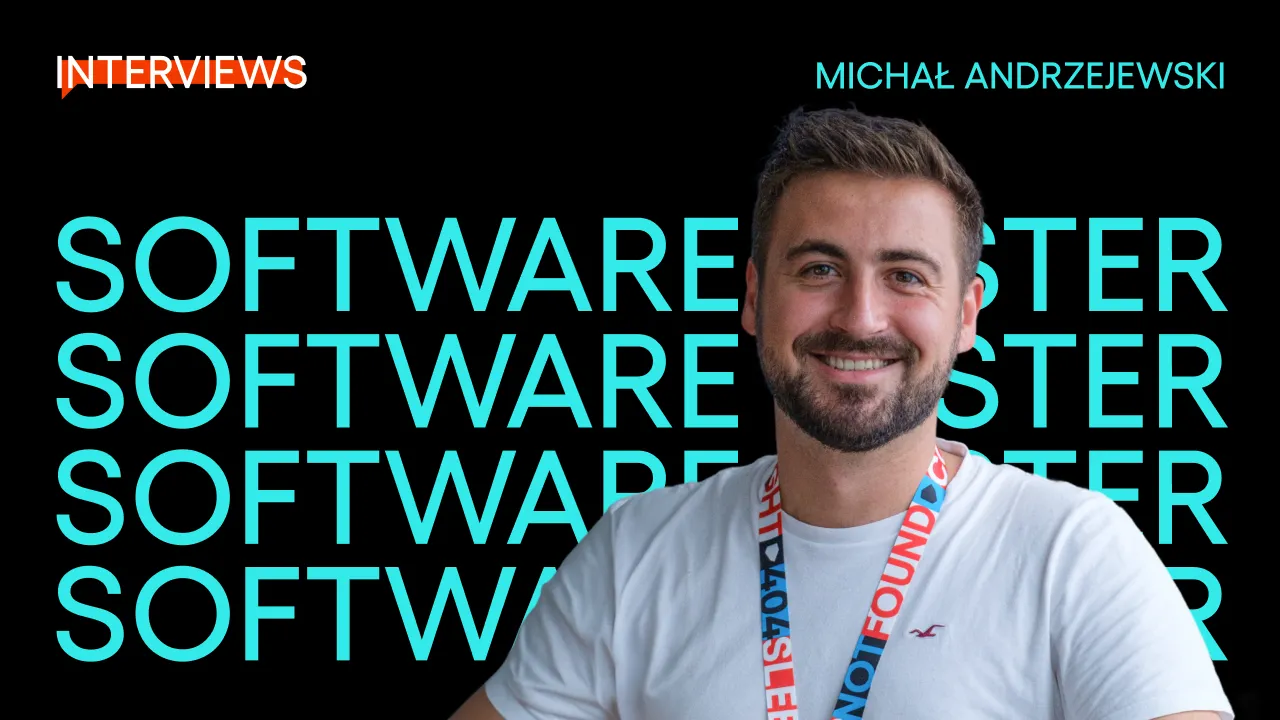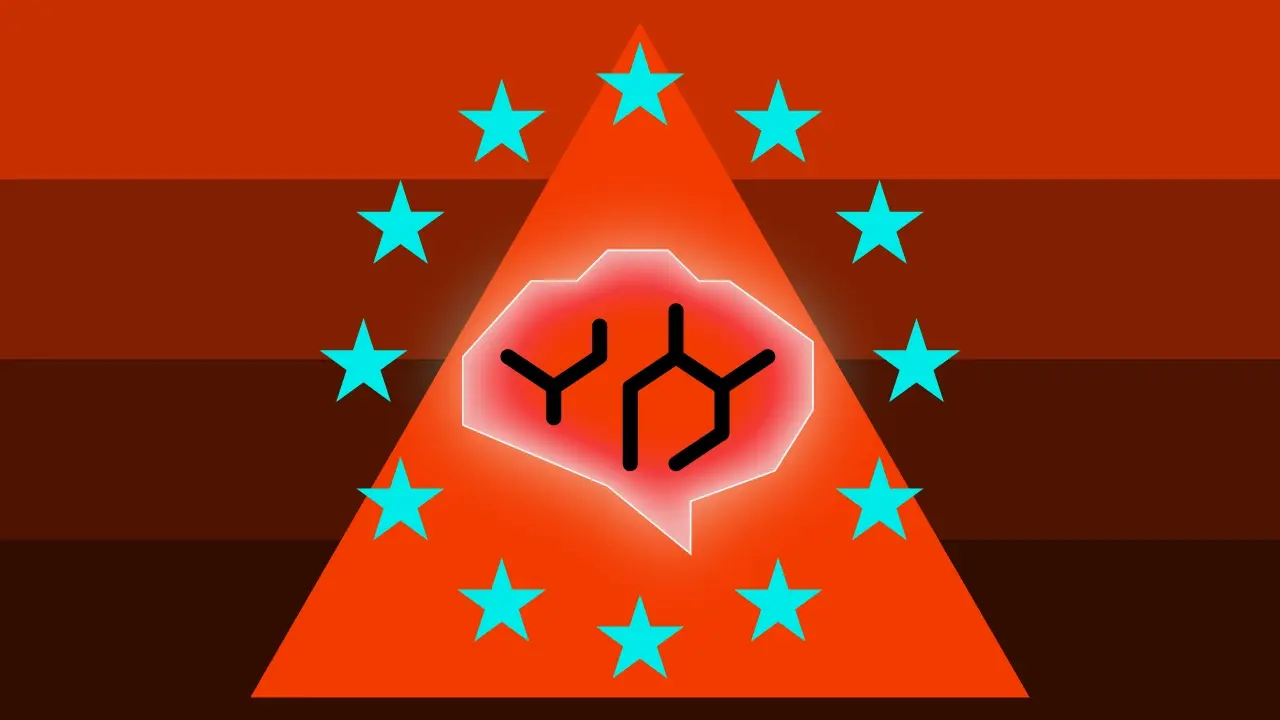#TeamSpeednet: Michał, Software Tester


Meet Michał, who shares insights about his work as a software tester at Speednet. Discover what a typical day looks like for him, which tools he uses, and what he values most about the company.
How long have you been working at Speednet and what do you do?
Michał: I’ve been working at Speednet for about 5.5 years, although to be honest, I can’t remember the exact start date. This is my first job in the IT industry, and it doesn’t seem like that’s going to change anytime soon [laughs]. I work as a software tester.
How did you join #TeamSpeednet?
Michał: It’s quite an interesting story. My mother is an accountant. One day, she suggested that since I enjoy “clicking on the computer,” maybe I should try my hand at IT. At the time, she had a client—Maciek, who worked as a tester at Speednet. I managed to have a brief conversation with him. He informed me that if I was interested in the job, I should obtain an ISTQB certification and then get back to him.
While preparing for the certification, I encountered another person connected to Speednet – Maciek Janeczko, who was conducting the training. During side conversations, he told me more about the company, and I thought it would be great to work there. After obtaining the certification, I reached out to the “first” Maciek [laughs], who invited me for an interview. That’s how I got an internship at Speednet. I was supposed to stay for a short time, but after the internship ended, I received a job offer to stay permanently. And here I am today.
What does your typical workday look like?
Michał: I start my typical workday with a cup of coffee. Once I sit down at the computer, I first check if any urgent matters require immediate attention, like something that happened overnight or in the morning. If nothing like that comes up, I usually have a task ready to work on, or I continue with something I’ve already started.
I analyze the requirements for new features and then write tests to ensure everything works as expected. As a tester, I don’t always have complete knowledge of all aspects of a project, so I often need to talk with developers or analysts to understand how a particular feature was designed and how it should function.
During work, additional technical challenges often arise. In such cases, developers, who have more technical experience, are invaluable. With their support, I can resolve issues more quickly or gain a better understanding of how a specific function works.
It might not sound particularly exciting, but the longer I work in this role, the more fascinating it becomes. Over time, I discover new ways to do things better, faster, more efficiently, and more reliably. It’s very satisfying to see that my tests produce real results that directly impact the quality of our work.
Which tools and technologies do you use most often?
Michał: I frequently use tools like Cypress and JavaScript, especially for test automation. For manual testing, I rely on the most popular browsers and their developer tools, and I also use Postman, Charles, or Proxyman.
Since I’ve mostly worked on projects based on React, I had to learn the basics of this library. This knowledge is essential because I often need to add test IDs to elements on the page or understand how a particular functionality works. Without a basic understanding of React, it would be difficult for me to navigate the project and identify specific elements, which would force me to consult with developers more frequently. This would significantly slow down the work, so I decided to learn React to perform my tasks independently.
On my learning list, I still have Playwright and TypeScript, and in the future, I’d like to explore test automation on mobile devices and deepen my knowledge of jMeter. But these are plans for further development.
Do your professional experiences influence how you approach everyday tasks like shopping, planning, or organizing?
Michał: I believe my professional experiences have a significant impact on how I approach everyday tasks. However, I wonder if it’s more the influence of my job or if I already had a natural predisposition to be a tester, paying close attention to details. I’ve always been quite meticulous, catching people on their words and often correcting others when something wasn’t done right.
It’s similar at work – if I notice something isn’t functioning as it should, I can’t just overlook it, I have to report it and suggest a fix. In my personal life, people often don’t appreciate this trait, but at work, it’s useful and valuable, and what’s more, that’s exactly what I’m paid to do [laughs].
When I started working at Speednet, my friends noticed that I became even more nitpicky. On one hand, they might find it annoying, but on the other hand, I’m fortunate to have found a job where my approach is not only accepted but also desired. Finding mistakes in other’s work might not seem enjoyable daily, but in the world of programming, it’s crucial and necessary.
Indeed, my professional approach carries over into my private life. When I go shopping, I prefer to have a prepared list and a clear plan of what I want to buy. Nothing irritates me more than coming back from the store without the items I needed, which I wouldn’t have forgotten if I had a list. Both at work and in my personal life, I like to have clearly defined requirements and a plan of action. This helps me avoid frustration and accomplish tasks more efficiently.
My professional experience and natural tendencies complement each other, influencing how I approach both my work and daily responsibilities.
Do you have any advice for people who are just starting their journey in testing?
Michał: If you’re just beginning your journey in testing, I have a few tips. First, it’s worth starting by obtaining a certification, such as ISTQB. This will not only make your initial job interviews easier but also help you stand out among other candidates. Earning the certification will also introduce you to the basic concepts and industry terminology, which is very useful at the beginning of your career. This way, you’ll be better prepared for your first day on the job.
Once you start working, I believe that open communication is key to success. Don’t be afraid to talk to developers, ask questions, and request explanations if something isn’t clear to you. It’s natural that, as a tester, you might have less technical knowledge than the developers, and that’s not a disadvantage. By asking questions, you can learn the most and build good relationships within the team. If you have developers nearby and can learn from them, take advantage of that and don’t be afraid to take the initiative. If you notice something in the project isn’t functioning as it should, or you see that the team is wasting time on certain tasks, share your observations. Ask if anyone has an idea for solving the problem or suggest what could be done better. No one will hold it against you, and your suggestions could positively impact the efficiency of the entire team.
What is your favorite memory related to Speednet?
Michał: My favorite memory? At Speednet, there are only good moments [laughs]. Seriously though, there are a few moments that stand out in my mind, but probably the one that stands out the most is when we decided to enter into a permanent collaboration. I remember that as a beginner tester, I came in with low expectations, which, to my surprise, were almost laughed at by the management. They told me there was no way they would agree to such terms, and then they offered me much better ones than I had expected. That showed me the company’s approach to its employees. I could have been taken advantage but instead, I was treated very fairly. That was a very positive surprise for me. It was at that moment I first thought that this could be a place where I could stay for a long time.
Besides that, I think about our company retreats, where we could spend a lot of time together, from morning until evening, without focusing on work, but rather on bonding and having a good time. These trips allowed us to get to know people better, especially those we don’t interact with much daily. They were always well-organized and full of activities and entertainment, so I always looked forward to the next one with great anticipation.
This year, you organized the EURO 2024 Betting League as a grassroots initiative. Could you tell us where the idea for this league came from and how it was executed?
Michał: The betting league is something I’ve participated in a few times with my friends. These kinds of activities always added an extra layer of excitement during the tournaments. It makes you even more invested in the championships because suddenly, every match – even the ones you might not normally care about – becomes important since you can earn points and climb the leaderboard ahead of your friends.
The idea was dropped by Krzysiek Janosz, and I thought it would be great to organize it again this year, especially since we’ve done something similar in the past. I started exploring the possibilities, got in touch with Weronika, and gathered interested people. We managed to convince a few people to join, and that’s how it all began. Additionally, the option to win prizes made it even more attractive and motivated people to participate in the competition.
I have the impression that most people were happy with it and became more engaged in following the championships. Thanks to this initiative, there were a lot of conversations about the matches in the hallways, with people sharing their insights, which, in turn, led to even greater team bonding within the company. I think it turned out pretty well.
You actively participate in various initiatives organized by the company and employees, such as football and board games. Could you tell us what specifically you value about working at Speednet?
Michał: The main factor that makes me want to work at this company is the management’s approach to employees. You don’t feel like an anonymous cell in an Excel sheet here. Rather, you’re treated as a person with respect and understanding. If a problem arises, you can always reach out to the appropriate people, and more importantly, you see that someone is trying to help you. You’re not left alone with the issue, instead, there’s a proposal that satisfies both sides.
Another aspect I appreciate is the atmosphere. We have a lot of freedom in organizing various activities, and the company actively supports our grassroots ideas. Additionally, Speednet regularly organizes different events and gatherings, which helps us integrate as a team.
Moreover, we engage in charitable activities, where everyone is eager to contribute to a common goal. Plus, compared to other companies, I think we’re very active when it comes to sports. We have many people who motivate others to stay active, encouraging group outings to the gym, volleyball games, or football matches. I feel that most people at Speednet value physical activity and enjoy getting together to do something as a group. All of this makes it simply a great place to work.




